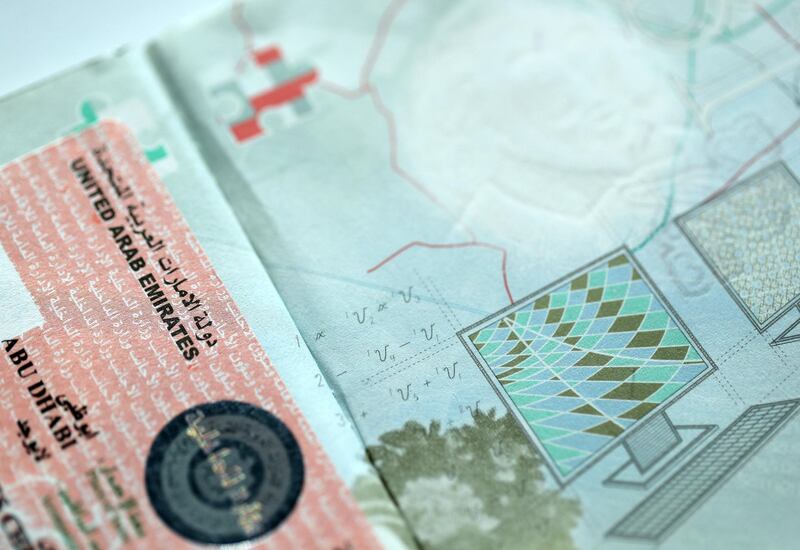The UAE's Ministry of Labour said the decision to temporarily suspend the good conduct certificate was made following a flood of complaints from businesses that were unable to process visas properly.
"The feedback we received from clients of the ministry was that the process of getting the certificate is delaying applications," Dr Omar Al Nuaimi, an assistant undersecretary at the ministry, told The National a day after the suspension was announced.
The rule was introduced on February 4, requiring that anyone moving to the UAE present a police document from their home nation demonstrating they had no criminal history or convictions.
The ministry said it has paused this after businesses and candidates struggled to secure them.
“They were facing difficulties and we wanted to make sure we don’t delay visa applications, so we decided to suspend and restudy how we apply the certificate. It is a temporary suspension,” Dr Al Nuaimi said.
____________
Read more:
UAE good conduct certificate: expats won't need police document to change jobs - yet
How to obtain a 'good conduct' certificate ahead of UAE's new work visa regulations
New UAE good conduct certificate system likely to be 'cumbersome but necessary'
____________
During the suspension, the ministry will be studying the procedures for acquiring the certificate. “We are in touch with the countries of origin on how we can speed up the process, how we can standardise it,” said the assistant undersecretary.
“Because clients were not clear on the certificate itself, we wanted to make sure to standardise the process and make sure we apply it in a way that doesn’t have a negative impact on doing business in the UAE."
Those who were already planning to apply for the certificate or started doing so, can continue with the procedure despite the suspension.
“Starting from yesterday, we are not requiring the certificate to be attached to the application, but those that have already been submitted will be processed,” said Dr Al Nuaimi.
Those who could not start new roles because of the certificate can now go ahead and start working, he said.
The decision concerns the ministry’s clients, the private sector. The assistant undersecretary did not know how the move applied to the public sector, where work visas are usually issued through immigration departments.
As for the need for a good conduct certificate for employees who are transferring jobs within the UAE, he said that it is “an internal company procedure and we don’t interfere in that. This is up to companies even if there is an extension [of the suspension].”
Murtaza Khan, a partner at the international immigration firm Fragomen Worldwide, said companies who waited until the certificate came into action on Feb 4 are most likely the ones who suffered teething issues and delays.
“The UAE Government obviously announced the move ahead of time. That was a good move that allowed for some preparatory time,” he said.
However, in some countries, where the process to obtain the certificate is long and involves many authorities and people must attend police stations in person for biometrics, they require more time to introduce the procedure.
“It is very important to avoid speculation. The Government has not given a specific date for when the need for the certificate will be reinstated, but what would be helpful is if, like the first time, they give a month or two notice,” he said.
“That will be welcomed by the private sector because all they need is time to plan for it."







